Egypt Travel Guide
Egypt Travel Guide – plan your trip to Egypt with our travel guide including how to get around, things to see and do, what and where to eat and many more.
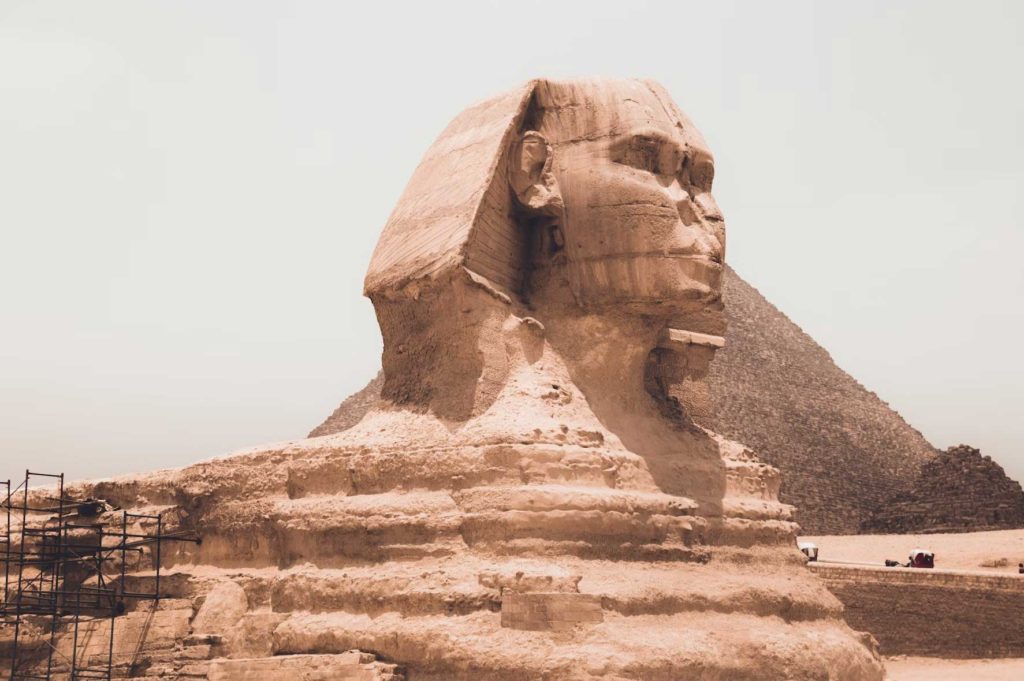
Welcome to Egypt, a captivating land that embodies the mystique and grandeur of ancient civilizations. Nestled in northeastern Africa, this timeless destination boasts a rich tapestry of history, culture, and breathtaking landscapes. Prepare to embark on a remarkable journey through the land of the pharaohs, where monumental pyramids, iconic temples, and vibrant cities await.
Travel to Egypt
As you step foot in Egypt, you’ll be instantly captivated by the iconic landmarks that have stood the test of time. The Great Pyramids of Giza, one of the Seven Wonders of the Ancient World, rise majestically from the desert sands, evoking a sense of awe and wonder. Explore the intricate chambers and labyrinthine corridors, marveling at the engineering marvels crafted by the ancient Egyptians. Nearby, the enigmatic Sphinx, with its lion’s body and human head, guards the plateau, adding to the mystical allure of the area.
Beyond its ancient wonders, Egypt offers a kaleidoscope of experiences. Immerse yourself in the vibrant chaos of Cairo, the bustling capital city, where modern skyscrapers blend seamlessly with centuries-old mosques and markets. Lose yourself in the maze-like streets of Khan el-Khalili, a renowned souk where the scent of exotic spices and the sound of bargaining fill the air. Cruise down the legendary Nile River, a lifeline for the country, and witness rural life unfold along its verdant banks. From Luxor’s Valley of the Kings to the tranquil shores of the Red Sea, Egypt offers a multitude of adventures that cater to every traveler’s taste.
Prepare to be enchanted by the warm hospitality of the Egyptian people, who are known for their friendliness and welcoming nature. Indulge in delectable culinary delights, savoring traditional dishes such as koshary, falafel, and mezze, accompanied by aromatic tea or strong Egyptian coffee. Discover a land steeped in ancient history, where each stone tells a story, and where the legacy of the pharaohs and the allure of the desert coexist in perfect harmony.
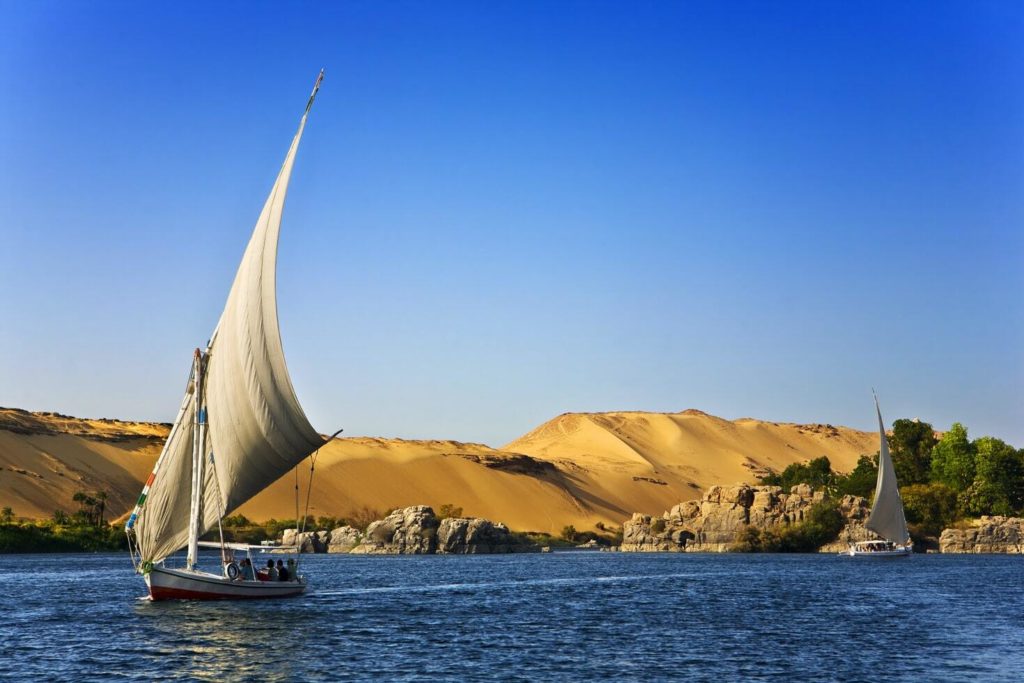
The best time to go to Egypt – the 4 seasons in Egypt
The best time to visit Egypt largely depends on the activities you wish to pursue and the regions you plan to explore. Egypt experiences a desert climate, with hot summers and mild winters. Here’s a breakdown of the four seasons:
Spring (March to May): Spring is considered one of the best times to visit Egypt. The weather is pleasantly warm, with temperatures ranging from 20°C (68°F) to 30°C (86°F). This season is ideal for exploring popular tourist destinations like Cairo, Luxor, and Aswan. It’s also a great time to embark on Nile River cruises and visit the ancient temples and tombs.
Summer (June to August): Summer in Egypt can be scorching, especially in the southern parts of the country. Temperatures can exceed 40°C (104°F) in cities like Luxor and Aswan. However, if you’re interested in diving and beach activities in the coastal regions like Sharm El-Sheikh and Hurghada, the Red Sea resorts offer relief from the heat with pleasant sea breezes.
Autumn (September to November): Autumn is another favorable time to visit Egypt. The temperatures gradually cool down from the summer heat, ranging between 25°C (77°F) and 35°C (95°F). It’s a great time to explore archaeological sites, visit the Egyptian Museum in Cairo, and enjoy outdoor activities like desert safaris or camel rides.
Winter (December to February): Winter in Egypt is generally mild, with temperatures ranging between 10°C (50°F) and 20°C (68°F). While the days are pleasant, nights can be colder, particularly in the desert areas. It’s an excellent time to explore the ancient wonders without the crowds, including the pyramids, temples, and historic sites.
Additionally, major religious holidays, such as Ramadan and Eid al-Fitr, may influence the availability of certain activities and services, so it’s worth considering those factors when planning your trip.
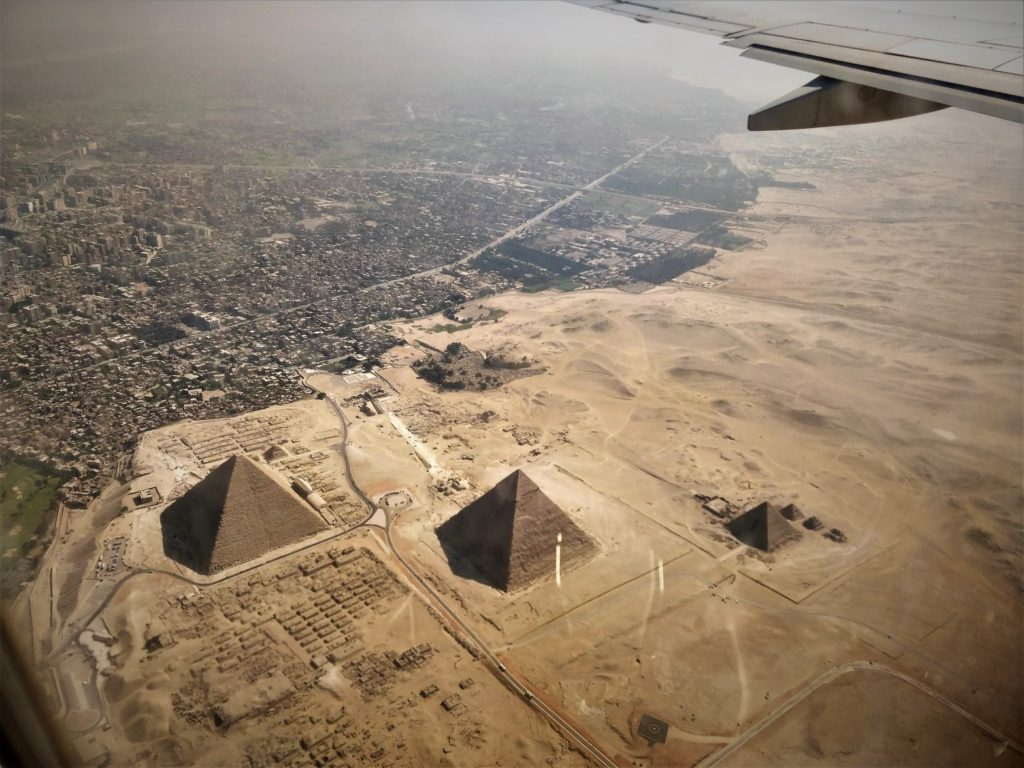
Entry and visa requirements for Egypt
Most travelers, including Americans and Europeans, require a visa to enter Egypt. However, the visa requirements vary depending on your nationality. Here’s a general overview:
American Citizens: American citizens traveling to Egypt for tourism purposes can obtain a tourist visa upon arrival at Egyptian airports or land border crossings. The visa is typically valid for a stay of up to 30 days. However, it’s always recommended to check with the nearest Egyptian embassy or consulate for the most up-to-date information prior to travel.
European Citizens: Citizens of many European countries, including those in the Schengen Area, can also obtain a tourist visa upon arrival in Egypt. Similar to American citizens, the visa is generally valid for up to 30 days. However, it’s advisable to verify the specific requirements based on your country of citizenship before traveling.
Other Nationalities: Travelers from other countries may need to apply for an Egyptian visa in advance from an Egyptian embassy or consulate in their home country. The visa application process may vary depending on your nationality, so it’s essential to consult the nearest Egyptian diplomatic mission for detailed instructions.
Visa requirements can change, so it’s recommended to verify the latest information well in advance of your trip. Additionally, it’s advisable to ensure your passport is valid for at least six months beyond your planned departure date from Egypt.
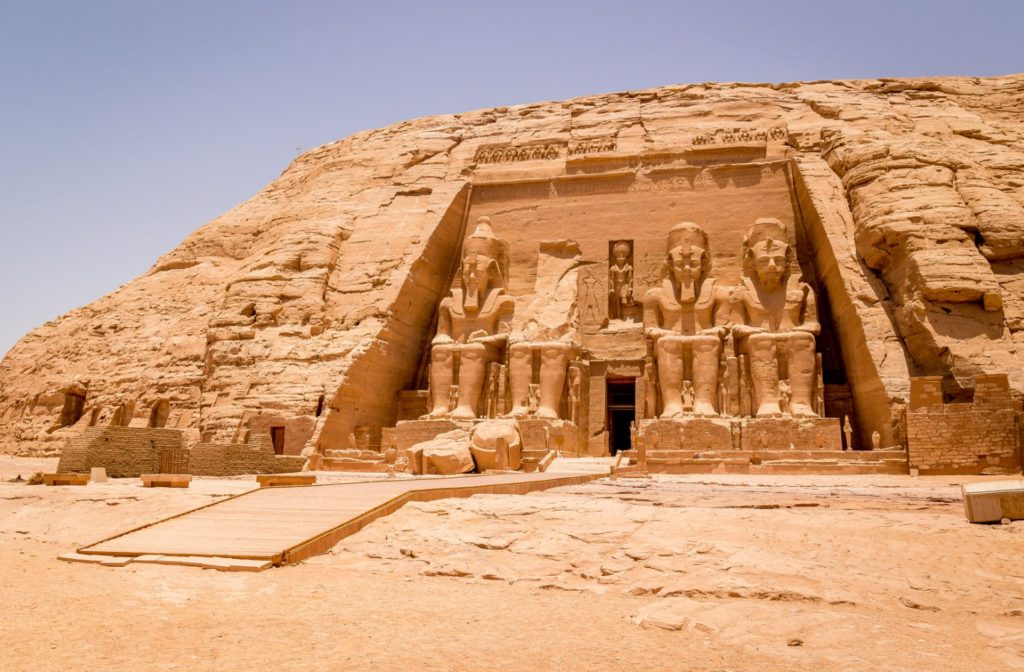
How to get around Egypt
Egypt offers various modes of transportation to get around the country. Here are some common ways to travel within Egypt:
Domestic Flights: Egypt has a well-developed domestic flight network, making it convenient to travel between major cities and popular tourist destinations. Cairo International Airport serves as the main hub for domestic flights, connecting to airports in Luxor, Aswan, Sharm El-Sheikh, and other cities. Domestic flights are a time-efficient option for covering long distances.
Trains: Egypt has an extensive railway system, with trains operating between major cities like Cairo, Alexandria, Luxor, and Aswan. The train journey allows you to enjoy scenic views of the Egyptian countryside. Overnight sleeper trains are available for longer distances, providing a comfortable and convenient way to travel between Cairo and Luxor/Aswan.
Buses: Buses are a common mode of transportation for both short and long distances in Egypt. The country has an extensive network of public buses operated by the government-owned company, the Egyptian Transport Authority. Private bus companies also offer services between popular tourist destinations. Minibuses, known as microbuses or mashrutas, are a budget-friendly option for local travel within cities.
Taxis: Taxis are widely available in Egypt, particularly in urban areas. Official taxis are usually metered, and it’s advisable to ensure the meter is running or agree on a fare before starting the journey. Ride-hailing services like Uber and Careem are also available in major cities like Cairo and Alexandria, providing a convenient and reliable option for transportation.
Nile River Cruises: If you’re planning to explore the ancient sites along the Nile River, such as Luxor and Aswan, a Nile River cruise is a popular and scenic option. These cruises offer a unique way to travel while enjoying the stunning views along the river, and they often include guided tours to historical sites.
Rental Cars: Renting a car gives you the freedom to explore Egypt at your own pace. Car rental agencies can be found at major airports and cities. However, driving in Egypt can be challenging due to congested traffic, different driving practices, and road conditions. It’s important to familiarize yourself with local traffic regulations and exercise caution if you choose to drive.
When using any mode of transportation in Egypt, it’s advisable to plan your itinerary in advance, consider travel times, and check for any potential disruptions or changes in schedules. It’s also recommended to use reputable and licensed transportation services to ensure safety and reliability.
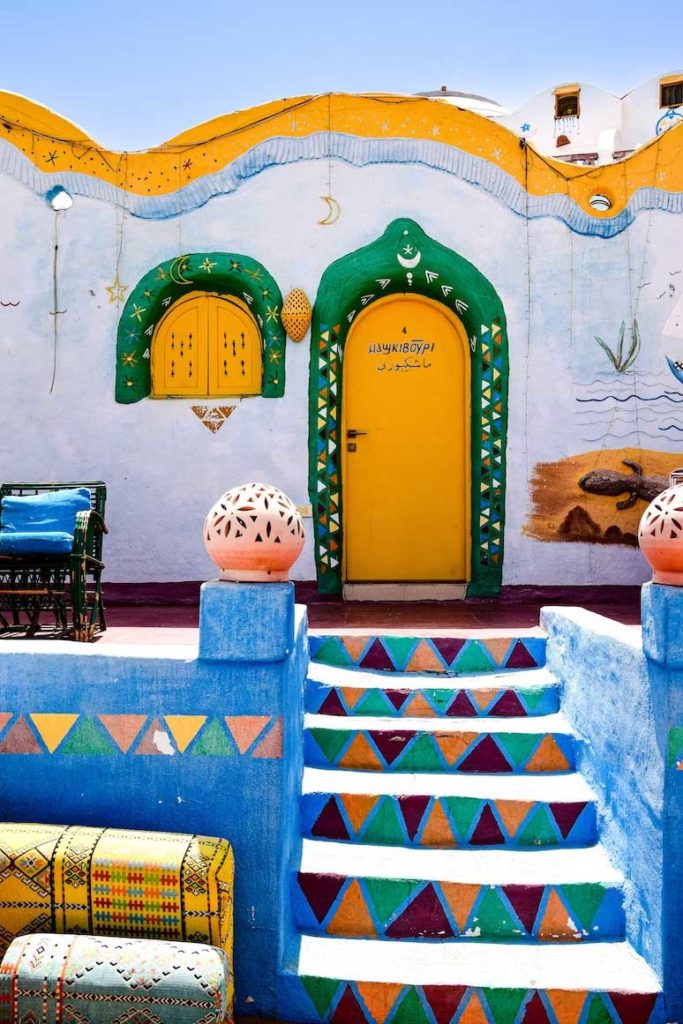
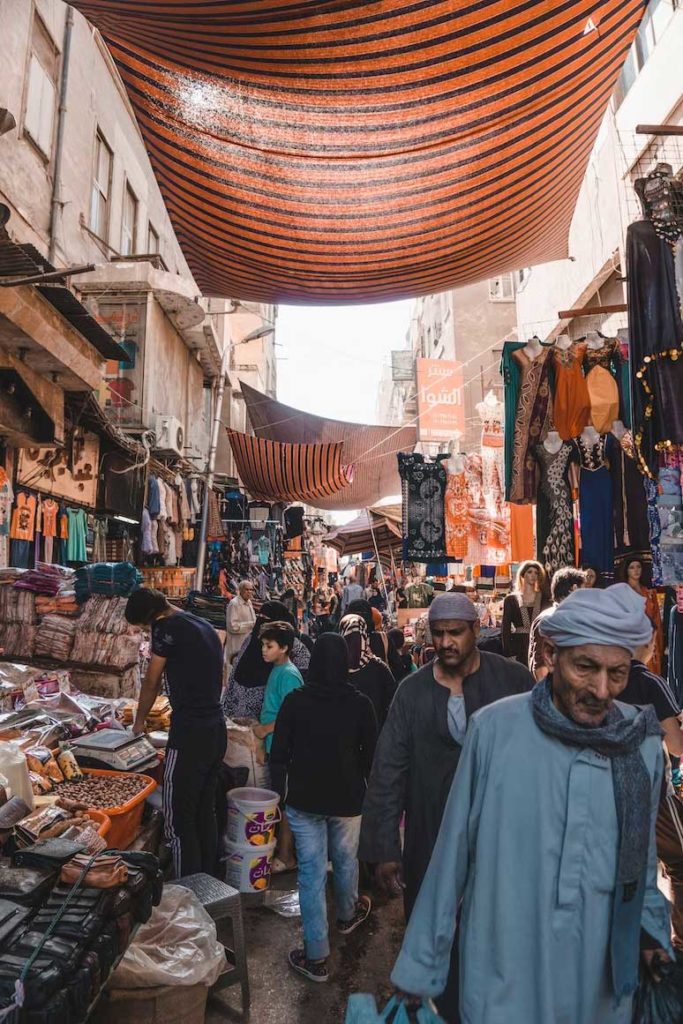
Explore the regions of Egypt
Cairo and the Nile Valley
Cairo, the bustling capital of Egypt, is a vibrant metropolis and the gateway to the ancient wonders of the Nile Valley. The city itself offers a mix of historical landmarks, including the awe-inspiring Giza Pyramids and the Sphinx, as well as modern attractions like the Egyptian Museum, housing a vast collection of ancient artifacts. As you venture along the Nile Valley, Luxor and Aswan beckon with their majestic temples, such as Karnak Temple, Luxor Temple, and the temple complexes of Abu Simbel. Don’t miss the opportunity to take a traditional felucca boat ride on the Nile and witness picturesque views. In Cairo, explore the vibrant markets of Khan el-Khalili for a true taste of Egyptian culture, and indulge in authentic Egyptian cuisine at renowned restaurants like Felfela and Naguib Mahfouz Café.
Red Sea Riviera
Egypt’s Red Sea Riviera stretches along the eastern coast, offering stunning beaches, clear turquoise waters, and remarkable diving and snorkeling sites. Popular resort towns like Sharm El-Sheikh, Hurghada, and Dahab are known for their world-class resorts, vibrant coral reefs, and diverse marine life. Dive enthusiasts can explore the vibrant underwater ecosystems of Ras Mohammed National Park or the renowned Thistlegorm shipwreck. For a break from water activities, venture into the desert for an adrenaline-pumping quad biking excursion or a serene camel ride through the scenic landscapes. Indulge in fresh seafood and international cuisines at beachfront restaurants like Fares Seafood in Hurghada or the Blue Ginger in Sharm El-Sheikh.
Upper Egypt and the Ancient Temples
Upper Egypt encompasses the southern part of the country and is home to some of Egypt’s most iconic ancient sites. Aswan, situated on the Nile River, boasts remarkable attractions such as the Philae Temple and the Unfinished Obelisk. Embark on a serene felucca sailboat ride around Elephantine Island or visit the vibrant Nubian villages for a cultural immersion. Further north, Luxor, often referred to as the world’s greatest open-air museum, showcases the grandeur of the Pharaonic era. Explore the Valley of the Kings, the Temple of Karnak, and the Temple of Hatshepsut. After a day of exploration, savor traditional Egyptian dishes like koshary and molokhia at local eateries such as El Hussein in Aswan or Sofra in Luxor.
Western Desert
For those seeking off-the-beaten-path adventures, Egypt’s Western Desert is a vast expanse of stunning landscapes and ancient treasures. The Bahariya Oasis offers a tranquil escape, with its lush palm groves and hot springs. Discover the surreal White Desert, with its chalk-white rock formations, or embark on a jeep safari through the stunning dunes of the Great Sand Sea. Don’t miss the chance to explore the Roman-era ruins of the Temple of Hibis or the unique rock formations of the Crystal Mountain. While dining options are limited in the desert, many tours provide traditional Bedouin-style meals and the opportunity to camp under the starry desert sky.
Each region in Egypt has its unique charm and attractions, providing a diverse range of experiences for travelers. Whether you’re fascinated by ancient history, seeking relaxation on pristine beaches, or yearning for thrilling desert adventures, Egypt offers a tapestry of unforgettable destinations and culinary delights.
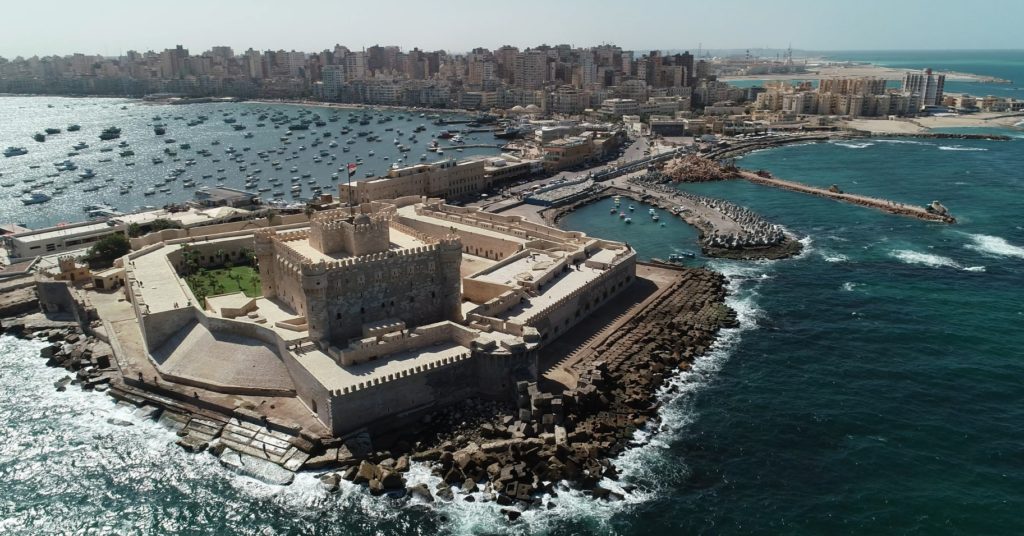
Explore the cities in Egypt
Cairo
Cairo, the vibrant capital of Egypt, is a bustling metropolis that effortlessly blends ancient wonders with modern charm. It is home to the iconic Giza Pyramids and the enigmatic Sphinx, which stand as testaments to the grandeur of the pharaohs. The Egyptian Museum houses a vast collection of artifacts, including the treasures of Tutankhamun. Visitors can immerse themselves in the chaotic charm of Khan el-Khalili market, where the scent of spices fills the air. For a serene escape, stroll along the Nile Corniche or explore the medieval architecture of Islamic Cairo. Cairo offers a vibrant nightlife scene, with bustling cafes, restaurants serving delectable Egyptian cuisine, and lively music and dance performances.
Luxor
Located on the banks of the Nile River, Luxor is often referred to as an open-air museum. It is home to the sprawling Karnak Temple Complex, where visitors can marvel at towering columns and intricately carved hieroglyphics. The nearby Luxor Temple stands as a testament to ancient Egyptian and Greco-Roman architecture. The Valley of the Kings, on the west bank of the Nile, reveals the intricate tombs of pharaohs, including the famous tomb of Tutankhamun. Take a hot air balloon ride to enjoy a bird’s-eye view of the iconic landmarks or embark on a Nile River cruise to explore the ancient temples and picturesque landscapes that line the river.
Aswan
Nestled on the Nile’s east bank, Aswan offers a tranquil setting and a wealth of historical attractions. Visit the majestic Philae Temple, dedicated to the goddess Isis, located on an island in the Nile. Enjoy a leisurely felucca sailboat ride around the serene Elephantine Island or venture to the Nubian villages to experience the vibrant local culture. The Unfinished Obelisk, lying in a granite quarry, showcases the grandeur of ancient Egyptian engineering. Aswan is also the gateway to the impressive Abu Simbel temples, carved out of solid rock. Don’t miss the opportunity to witness the mesmerizing sunset over the Nile from the Mausoleum of Aga Khan.
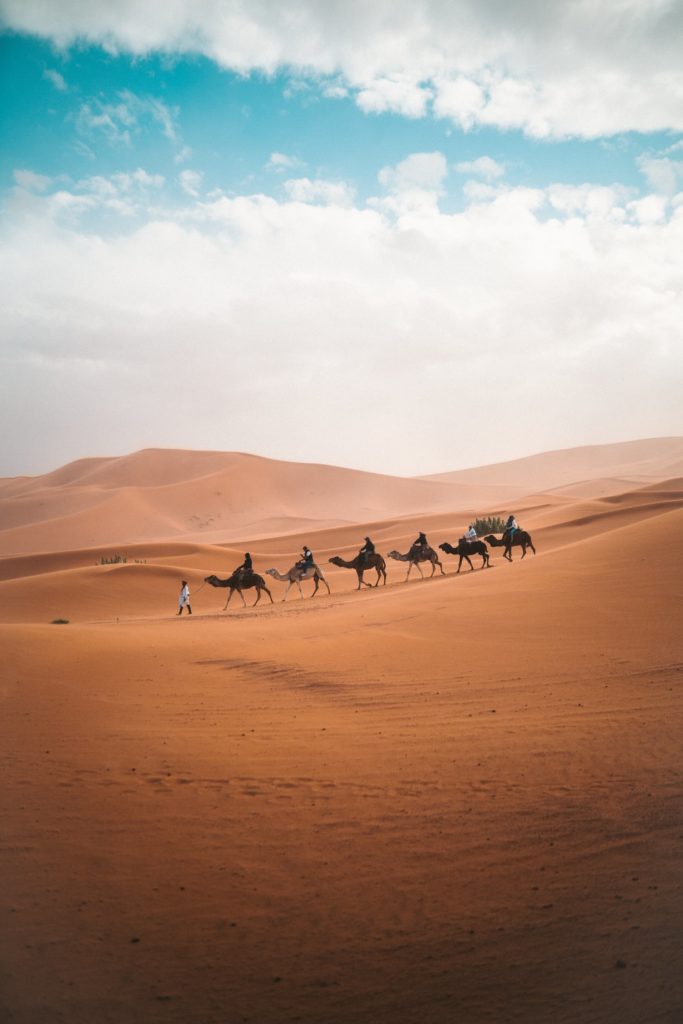
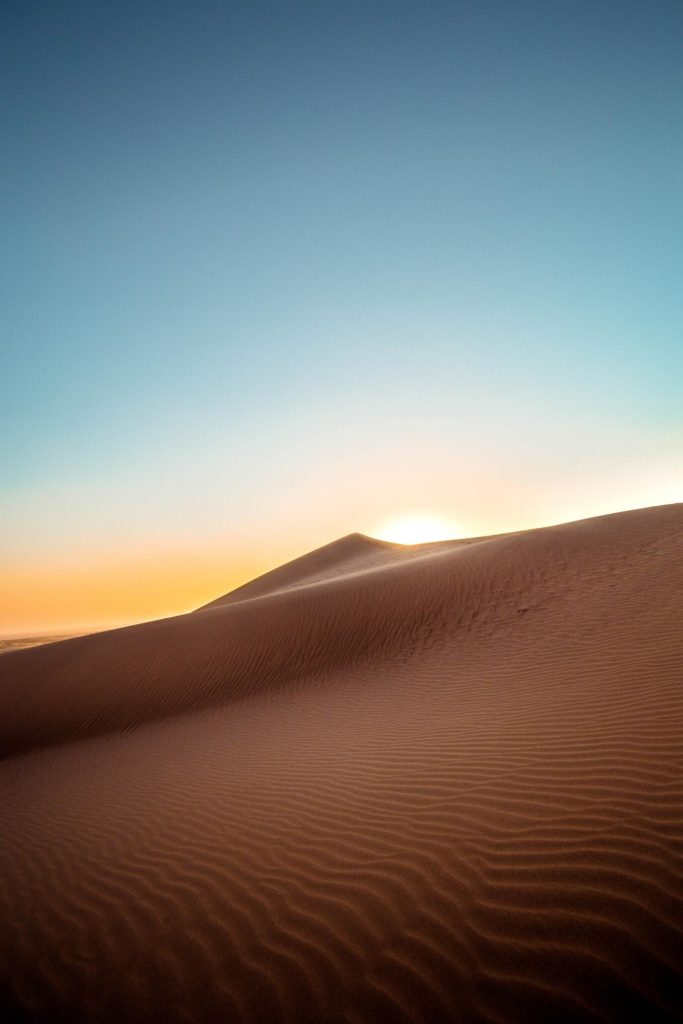
Alexandria
Alexandria, Egypt’s second-largest city, is a coastal gem steeped in history. Explore the Catacombs of Kom El Shoqafa, an ancient Roman burial site, and visit the stunning Qaitbay Citadel, offering panoramic views of the Mediterranean Sea. The Bibliotheca Alexandrina, a modern incarnation of the ancient Library of Alexandria, serves as a cultural hub with its vast collection of books and exhibitions. Stroll along the Corniche, a scenic waterfront promenade, or relax on the beautiful beaches. Alexandria also boasts charming neighborhoods like Montaza, with its royal gardens and palace, and the vibrant streets of the old town, where you can savor seafood at local eateries and explore vibrant markets.
Hurghada
Hurghada is a popular coastal city located along the Red Sea Riviera, known for its stunning beaches, crystal-clear waters, and vibrant marine life. It has transformed from a small fishing village into a thriving resort town, attracting tourists from around the world. Hurghada offers a wide range of activities and attractions for visitors to enjoy. One of the main draws of Hurghada is its world-class diving and snorkeling opportunities. The Red Sea is renowned for its vibrant coral reefs and diverse marine ecosystem. Dive enthusiasts can explore spectacular sites such as Giftun Island, Abu Nuhas Shipwreck, and the famous Blue Hole. Snorkelers can also revel in the colorful underwater world, observing tropical fish and beautiful coral formations.
Each city in Egypt has its own unique charm, offering a captivating blend of ancient history, architectural marvels, and vibrant local culture. Whether you’re exploring the iconic pyramids, cruising the Nile, or savoring the flavors of Egyptian cuisine, each city promises an unforgettable experience for travelers seeking to immerse themselves in Egypt’s rich heritage.

Culture and way of live in Egypt
Egyptian culture is a vibrant tapestry woven with a rich history and a diverse range of influences. It is a fusion of ancient traditions and modern influences that have shaped the way of life in Egypt. Here are some key aspects of Egyptian culture and the way of life:
Heritage and History: Egypt’s cultural identity is deeply rooted in its ancient civilization, dating back thousands of years. The legacy of the pharaohs, the grandeur of the pyramids, and the magnificence of temples all contribute to a sense of national pride and reverence for Egypt’s historical heritage. Egyptians hold great respect for their ancestors and take pride in preserving their cultural treasures.
Hospitality and Warmth: Egyptians are renowned for their hospitality and welcoming nature. Visitors to Egypt often experience the genuine warmth and friendliness of the locals. Egyptians value relationships and prioritize family and community bonds. Guests are treated with kindness and generosity, and it is customary for Egyptians to offer tea or coffee as a gesture of hospitality.
Religion and Islam: Islam is the predominant religion in Egypt, and its principles influence many aspects of daily life. Mosques are central to the community, and the call to prayer echoes throughout the cities and towns. Egyptians observe religious practices, such as fasting during Ramadan, and many gather for communal prayers and celebrations. Islamic values, including respect for elders, modesty, and generosity, are deeply ingrained in Egyptian culture.
Culinary Delights: Egyptian cuisine is a delightful reflection of the country’s history and regional influences. Traditional dishes such as koshary (a mix of rice, lentils, and pasta topped with spicy tomato sauce), falafel, and shawarma are widely enjoyed. Egyptian food is known for its vibrant flavors, aromatic spices, and use of fresh ingredients like herbs, vegetables, and legumes.
Art, Music, and Dance: Egypt has a rich artistic heritage, with traditional art forms that have evolved over centuries. From intricately designed Islamic architecture to ancient hieroglyphic inscriptions, artistic expression is deeply valued. Egyptian music and dance, such as the captivating sounds of the oud (lute) and the energetic movements of belly dancing, provide a lively and vibrant atmosphere during celebrations and social gatherings.
Festivals and Celebrations: Egyptians celebrate a variety of festivals and religious holidays. Ramadan, the Islamic month of fasting, is a significant observance, marked by communal meals, spiritual reflection, and acts of charity. Eid al-Fitr, the festival that marks the end of Ramadan, is a joyous time of feasting and family gatherings. Other cultural celebrations, such as Sham el-Nessim, a spring festival, and Moulid al-Nabi, the Prophet Muhammad’s birthday, are occasions for festive gatherings and traditions.
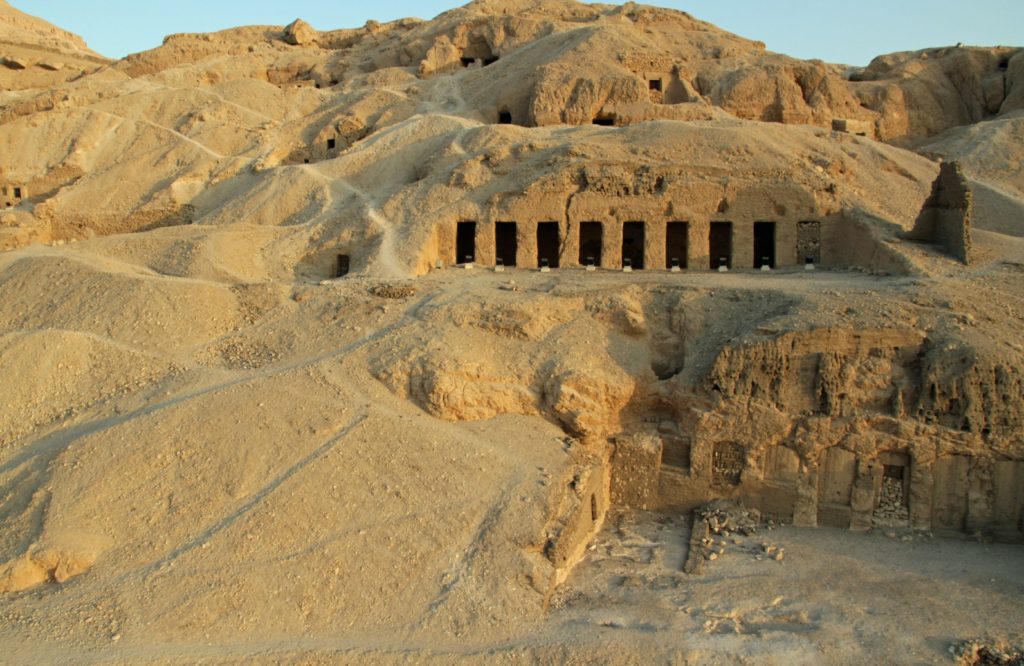
Must see in Egypt
Egypt is a treasure trove of ancient wonders and cultural marvels, offering a myriad of must-see destinations that captivate travelers from around the globe. Here are some of the top attractions that should be on every visitor’s itinerary:
The Great Pyramids of Giza
As one of the Seven Wonders of the Ancient World, the Great Pyramids of Giza stand tall as an enduring symbol of ancient Egypt. Marvel at the awe-inspiring engineering and monumental scale of the pyramids, including the Great Pyramid of Khufu, the Pyramid of Khafre, and the Pyramid of Menkaure. Don’t miss the enigmatic Sphinx, guarding the pyramids and adding to the mystical allure of the site.
The Temples of Luxor and Karnak
Journey to the city of Luxor, known as the world’s greatest open-air museum, and explore the Temple of Luxor, an ancient Egyptian temple dedicated to Amun-Ra. Continue to the sprawling Karnak Temple Complex, a colossal array of sanctuaries, pylons, and obelisks. Stroll among the massive columns of the Hypostyle Hall, an architectural marvel that leaves visitors in awe.
Abu Simbel Temples
Venture to the southern reaches of Egypt to witness the breathtaking Abu Simbel Temples. Carved out of solid rock, the twin temples of Abu Simbel are dedicated to Pharaoh Ramesses II and his queen, Nefertari. The colossal statues guarding the entrance and the intricate wall carvings within make this UNESCO World Heritage Site a must-visit destination.
The Egyptian Museum, Cairo
Immerse yourself in the vast collection of ancient artifacts at the Egyptian Museum in Cairo. From the iconic golden mask of Tutankhamun to statues, jewelry, and relics from ancient Egypt, the museum offers a captivating journey through the country’s history and pharaonic treasures. Be sure to visit the Royal Mummy Room, where well-preserved mummies of pharaohs and royals are on display.
Nile River Cruise
Embark on a magical journey along the Nile River, the lifeblood of Egypt, on a traditional felucca sailboat or a luxurious cruise ship. Traverse the serene waters and witness the picturesque landscapes, passing by lush green banks, ancient temples, and rural villages. A Nile River cruise offers a unique perspective on Egypt’s cultural heritage and provides access to key attractions along the river.
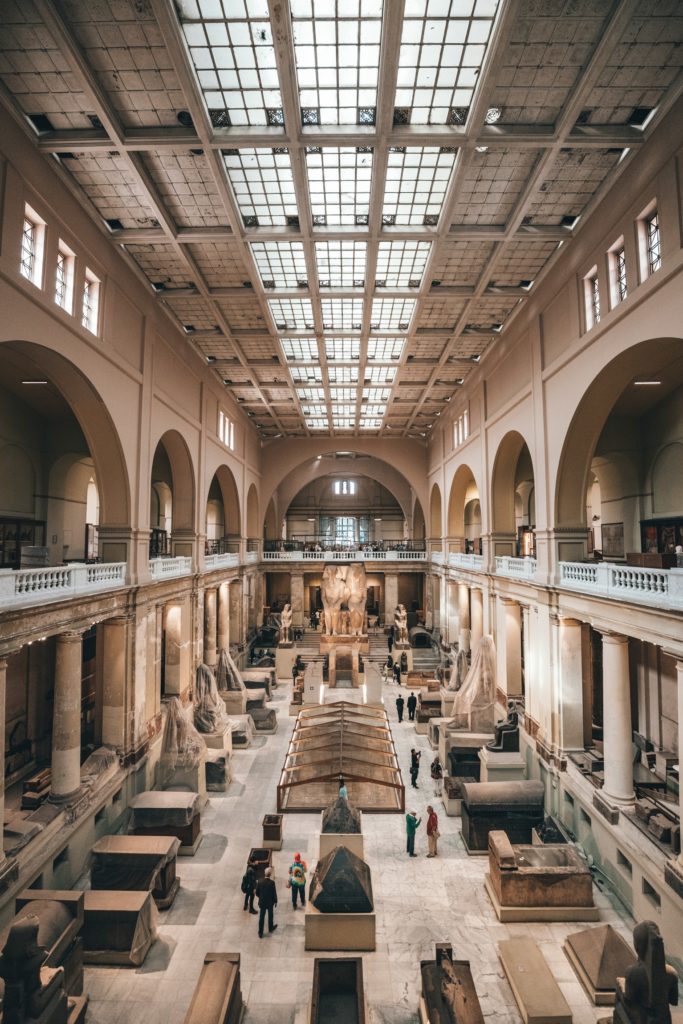
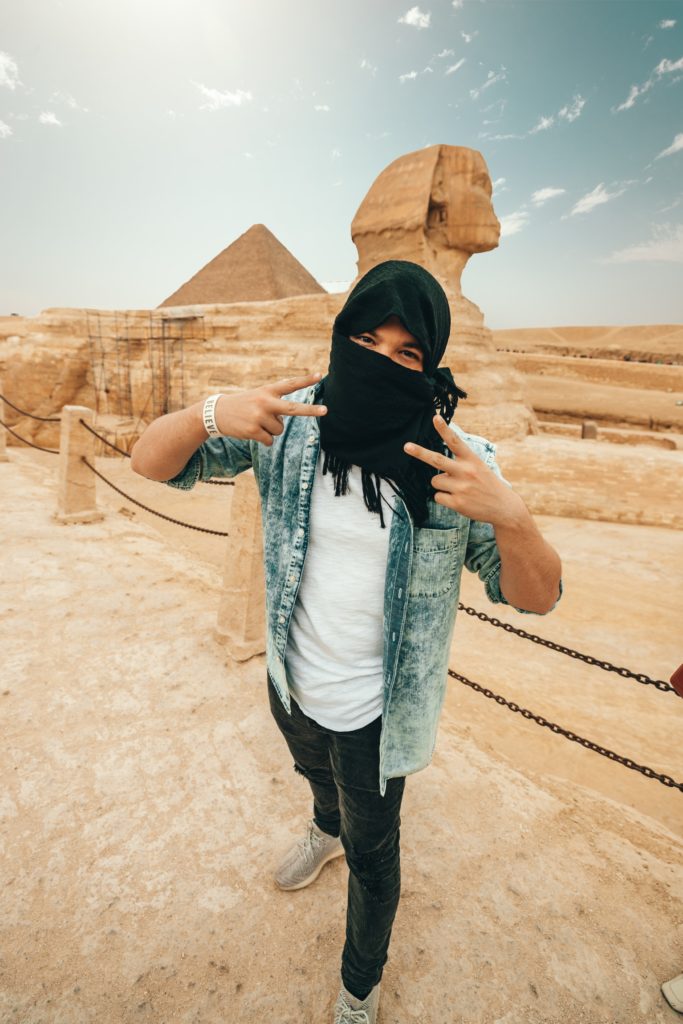
Valley of the Kings
Discover the hidden treasures of ancient pharaohs in the Valley of the Kings, located on the west bank of the Nile near Luxor. Explore the intricately decorated tombs, such as the tomb of Tutankhamun and the tomb of Ramesses VI, and witness the stunning preservation of hieroglyphic carvings and colorful wall paintings that depict the journey to the afterlife.
Aswan and Philae Temple
Visit Aswan, a picturesque city on the banks of the Nile, and explore the majestic Philae Temple. Accessible by boat, this temple complex is dedicated to the goddess Isis and offers a fascinating glimpse into ancient Egyptian mythology and architecture. Take in the tranquil beauty of the temple surrounded by the shimmering waters of the Nile.
Islamic Cairo
Immerse yourself in the historical charm of Islamic Cairo, a UNESCO World Heritage Site. Explore the medieval streets, visit ancient mosques like the Mosque of Muhammad Ali and the Sultan Hassan Mosque, and wander through vibrant markets and bazaars like Khan el-Khalili. Experience the lively atmosphere, indulge in local street food, and witness the fusion of Islamic, Coptic, and Pharaonic influences.
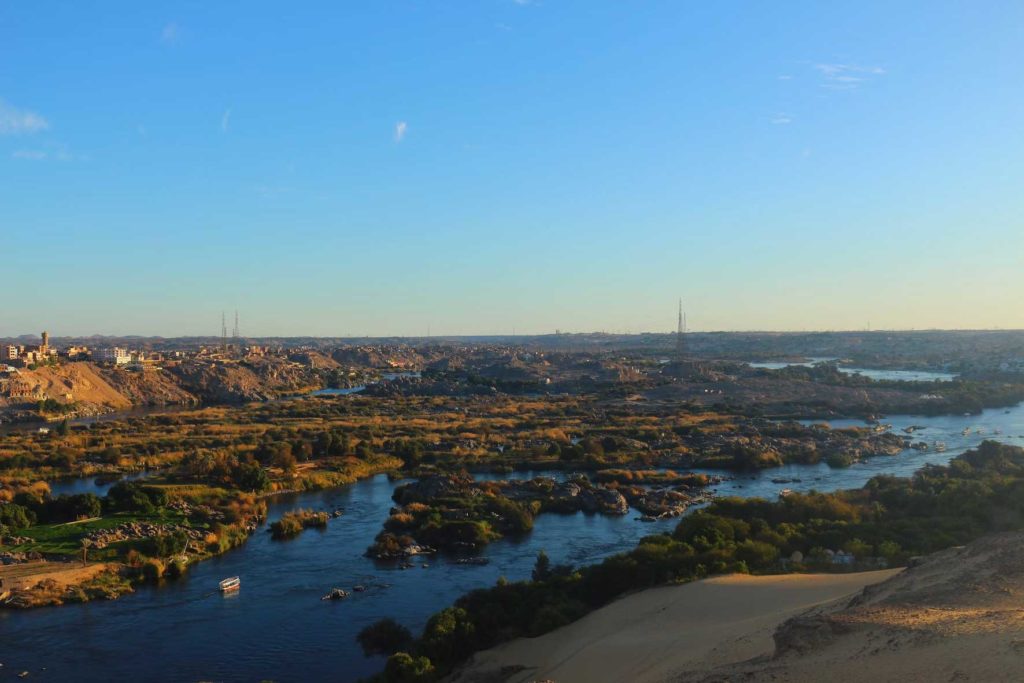
Must-live experiences in Egypt
Egypt offers a plethora of unforgettable experiences that allow travelers to immerse themselves in the rich culture and history of the country. Here are ten must-live experiences in Egypt:
Explore the Great Pyramids of Giza
Stand in awe of the towering Great Pyramids of Giza, one of the Seven Wonders of the Ancient World. Marvel at the architectural marvels, venture inside the ancient tombs, and witness the enigmatic Sphinx guarding the plateau.
Sail the Nile on a Felucca
Embark on a traditional felucca sailboat and cruise along the timeless Nile River. Drift peacefully past picturesque landscapes, rural villages, and ancient temples, soaking in the tranquility and beauty of this iconic waterway.
Snorkel or Dive in the Red Sea
Discover the vibrant underwater world of the Red Sea. Dive or snorkel amidst stunning coral reefs, encounter colorful marine life, and explore renowned dive sites like Ras Mohammed and the SS Thistlegorm shipwreck.
Visit Abu Simbel Temples
Journey to the southernmost reaches of Egypt to witness the awe-inspiring Abu Simbel Temples. Marvel at the colossal statues and intricate carvings of these rock-cut temples, dedicated to Ramses II and Queen Nefertari.
Wander the Temples of Karnak
Explore the grandeur of the Karnak Temple Complex in Luxor. Walk through the massive columns of the Hypostyle Hall, witness the towering obelisks, and admire the well-preserved hieroglyphics that depict ancient Egyptian mythology.
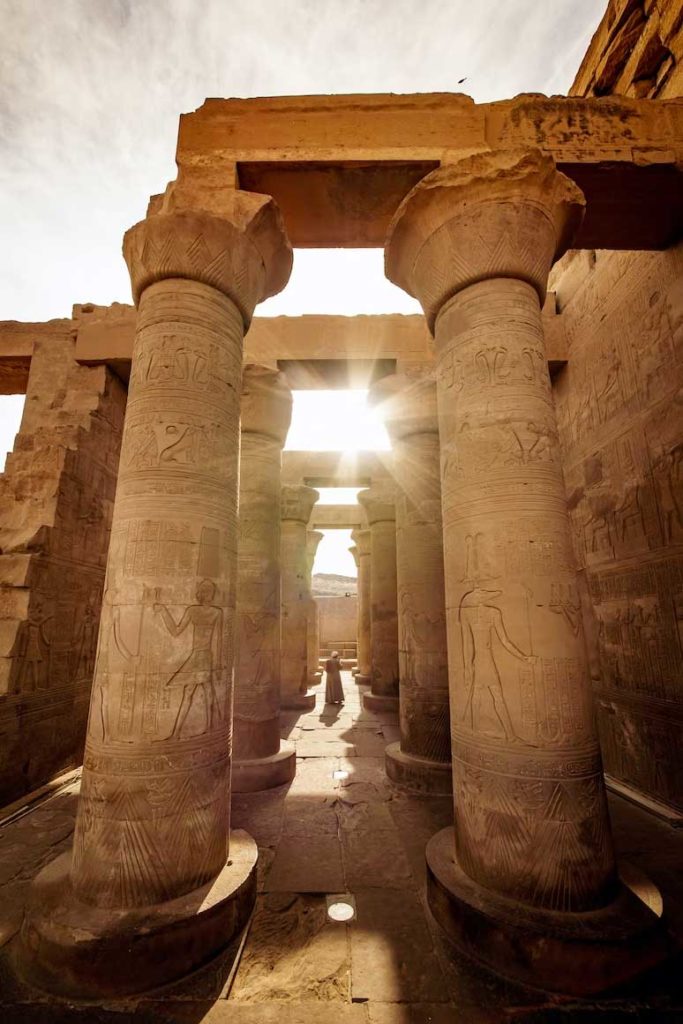
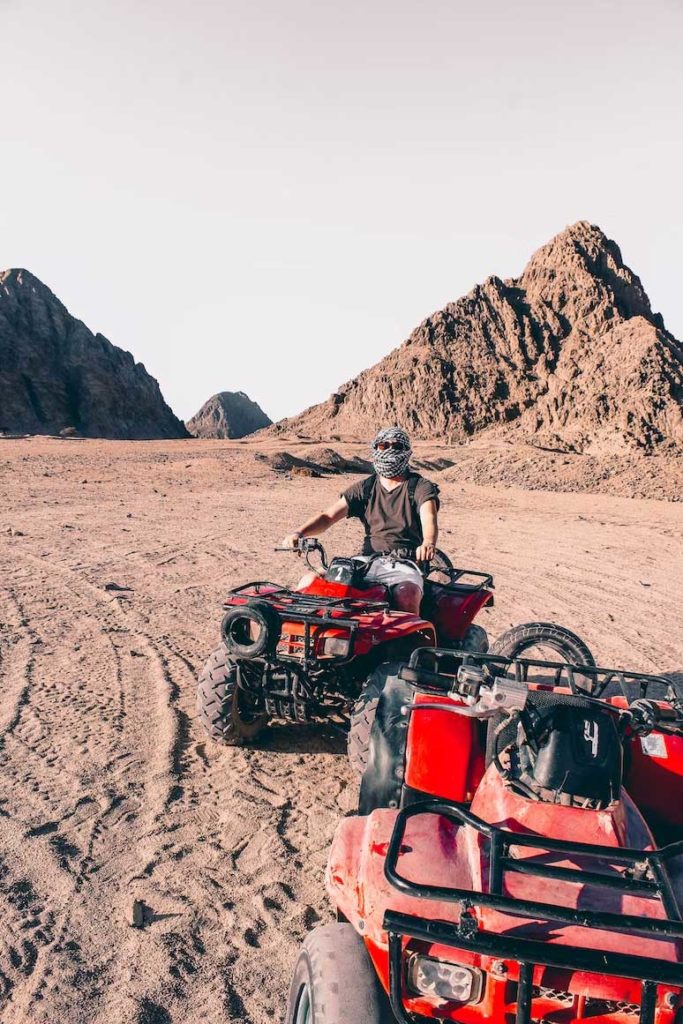
Experience a Sound and Light Show
Attend a mesmerizing sound and light show at iconic sites like the Giza Pyramids or Philae Temple. Immerse yourself in the storytelling spectacle that brings ancient history to life through colorful lights and captivating narration.
Discover the Valley of the Kings
Uncover the secrets of the pharaohs in the Valley of the Kings. Explore the intricately decorated tombs, including the tomb of Tutankhamun, and witness the magnificent wall paintings that depict the journey to the afterlife.
Marvel at Islamic Cairo
Stroll through the enchanting streets of Islamic Cairo, where ancient mosques, vibrant markets, and historical landmarks await. Visit the magnificent Sultan Hassan Mosque, wander through the bustling Khan el-Khalili bazaar, and indulge in local street food.
Visit the Egyptian Museum in Cairo
Delve into Egypt’s fascinating history at the Egyptian Museum. Admire the treasures of Tutankhamun, marvel at ancient artifacts, and witness the stunning collection of mummies, statues, and jewelry that showcase the country’s heritage.
Immerse in Nubian Culture
Travel to Aswan and experience the vibrant Nubian culture. Engage with friendly locals, visit Nubian villages, learn about their traditional customs, and savor authentic Nubian cuisine. Take a ride on a traditional Nubian sailboat, known as a felucca, for a unique perspective of Aswan’s beauty.
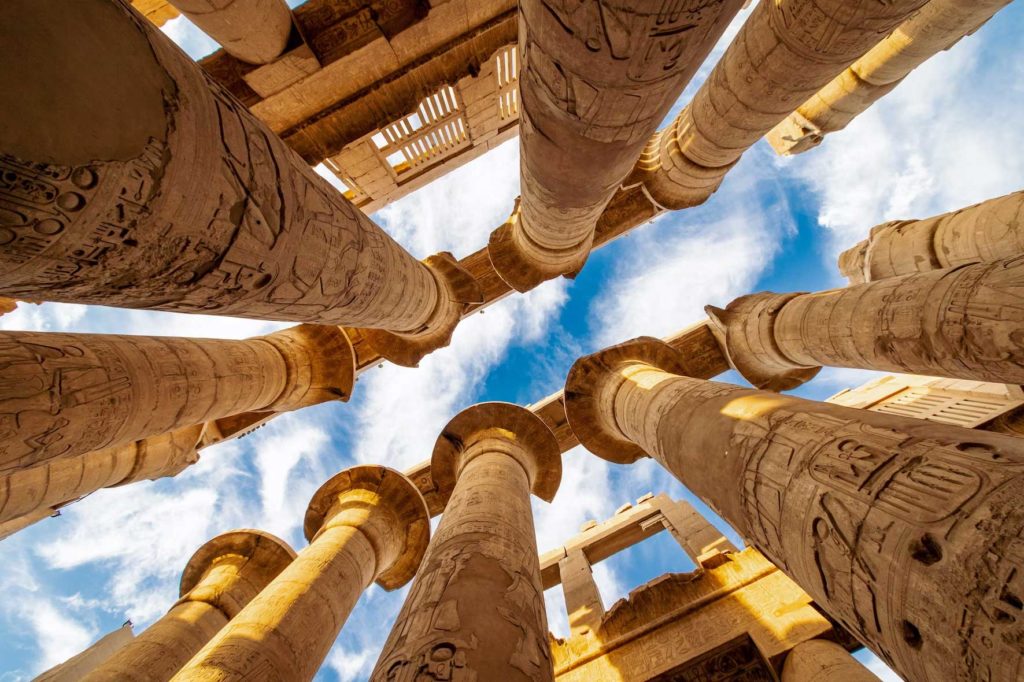
Where to stay – iconic and luxury hotels in Egypt
Egypt boasts a selection of luxurious hotels that combine opulence, world-class amenities, and stunning settings. Here are ten iconic and highly regarded luxury hotels in Egypt:
Four Seasons Hotel Cairo at Nile Plaza, Cairo: Located on the banks of the Nile, this five-star hotel offers luxurious rooms and suites with breathtaking views of the river. It features multiple restaurants, a spa, and an outdoor pool, ensuring a lavish and comfortable stay.
The Nile Ritz-Carlton, Cairo: Situated in the heart of downtown Cairo, this elegant hotel provides guests with luxurious rooms, an array of dining options, a spa, and a rooftop pool offering panoramic views of the city and the Nile.
The Oberoi Zahra, Nile Cruiser: Experience the ultimate luxury on a Nile River cruise aboard The Oberoi Zahra. This exclusive cruiser offers spacious cabins, gourmet dining, a spa, and personalized service, allowing guests to explore the ancient wonders of Egypt in style.
Sofitel Legend Old Cataract Aswan: Nestled on the banks of the Nile in Aswan, this historic hotel is renowned for its Victorian-era elegance and grandeur. It offers luxurious accommodations, a stunning infinity pool, multiple dining options, and views of the river and Elephantine Island.
The St. Regis Cairo: Rising above the Nile Corniche, The St. Regis Cairo features lavish rooms and suites with modern amenities. Guests can enjoy world-class dining options, a rooftop pool, a spa, and stunning views of the river and the city skyline.
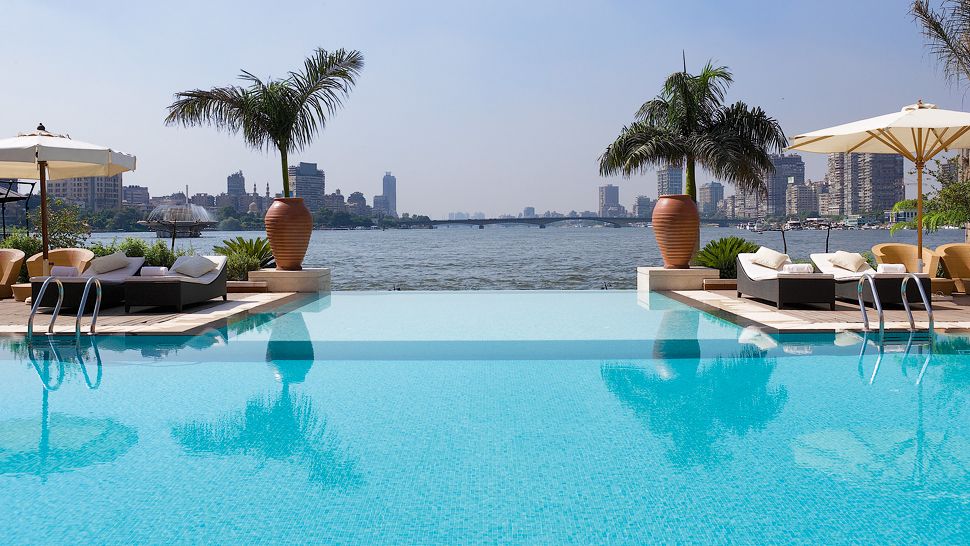
Ritz-Carlton, Sharm El Sheikh: Situated on the shores of the Red Sea, this luxurious resort offers an idyllic beachfront retreat. With spacious rooms, private villas, multiple pools, a diving center, and an extensive spa, it promises a tranquil and indulgent stay.
Four Seasons Resort Sharm El Sheikh: Located in the heart of the Red Sea Riviera, this upscale resort showcases stunning views of the Red Sea and the Sinai Mountains. It offers luxurious accommodations, private beach access, world-class dining, and a variety of recreational activities.
Kempinski Hotel Soma Bay: Set on the shores of the Red Sea in Soma Bay, this five-star resort boasts a beautiful beachfront location and luxurious amenities. It features spacious rooms and suites, a golf course, a spa, multiple swimming pools, and an array of dining options.
The Oberoi, Sahl Hasheesh: This secluded and exclusive resort in Sahl Hasheesh offers luxurious suites, private pools, and direct access to a pristine beach. With serene surroundings, a spa, and exquisite dining experiences, it ensures a tranquil and lavish stay.
Hilton Luxor Resort & Spa: Located on the east bank of the Nile in Luxor, this upscale resort offers stunning views of the river and the ancient temples. With elegant rooms, lush gardens, multiple swimming pools, and a spa, it provides a luxurious oasis for relaxation.
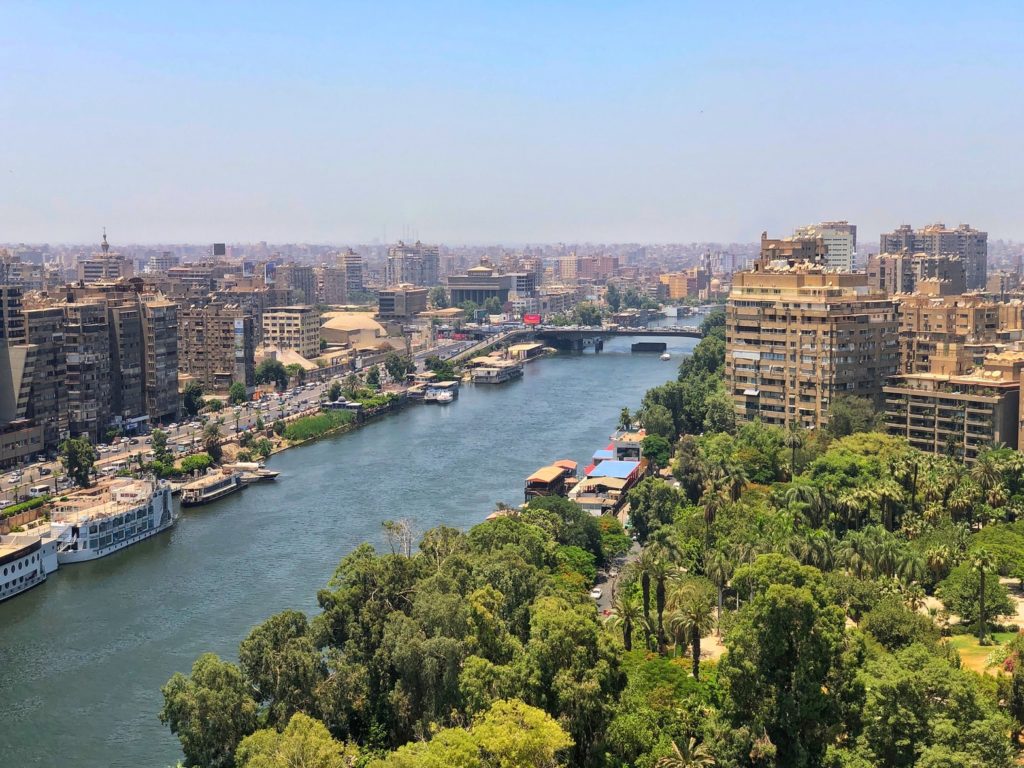
Food and drinks in Egypt
Food & drinks specialities of Egypt you should try
Egyptian cuisine is a delightful tapestry of flavors, influenced by its ancient history and the diverse cultural influences that have shaped the country over the centuries. From aromatic spices to hearty street food, here are some of the food and drink specialties that make Egypt a culinary paradise:
Koshary: Considered Egypt’s national dish, koshary is a hearty and satisfying comfort food. It consists of layers of rice, lentils, macaroni, and chickpeas, topped with a tangy tomato sauce and crispy fried onions. It’s a flavorful and filling vegetarian option that can be found in local restaurants and street food stalls throughout the country.
Ful Medames: A staple of Egyptian breakfast, ful medames is a savory dish made from slow-cooked fava beans. The beans are typically seasoned with garlic, lemon juice, and olive oil, and served with warm Egyptian bread. It’s a popular street food option and can be customized with additional toppings like chopped tomatoes, onions, and herbs.
Egyptian Mezze: Mezze refers to a variety of small dishes served as appetizers or accompaniments. Egyptian mezze often includes favorites like hummus (a creamy chickpea dip), baba ganoush (roasted eggplant dip), falafel (deep-fried chickpea fritters), and stuffed vine leaves. These flavorful bites are perfect for sharing and are best enjoyed with freshly baked pita bread.
Shawarma: A popular street food, shawarma is a Middle Eastern classic that has become a beloved part of Egyptian cuisine. It typically consists of thinly sliced marinated meat (such as beef, chicken, or lamb) that is slow-roasted on a vertical spit. The tender meat is then wrapped in flatbread and topped with tahini sauce, fresh vegetables, and pickles.
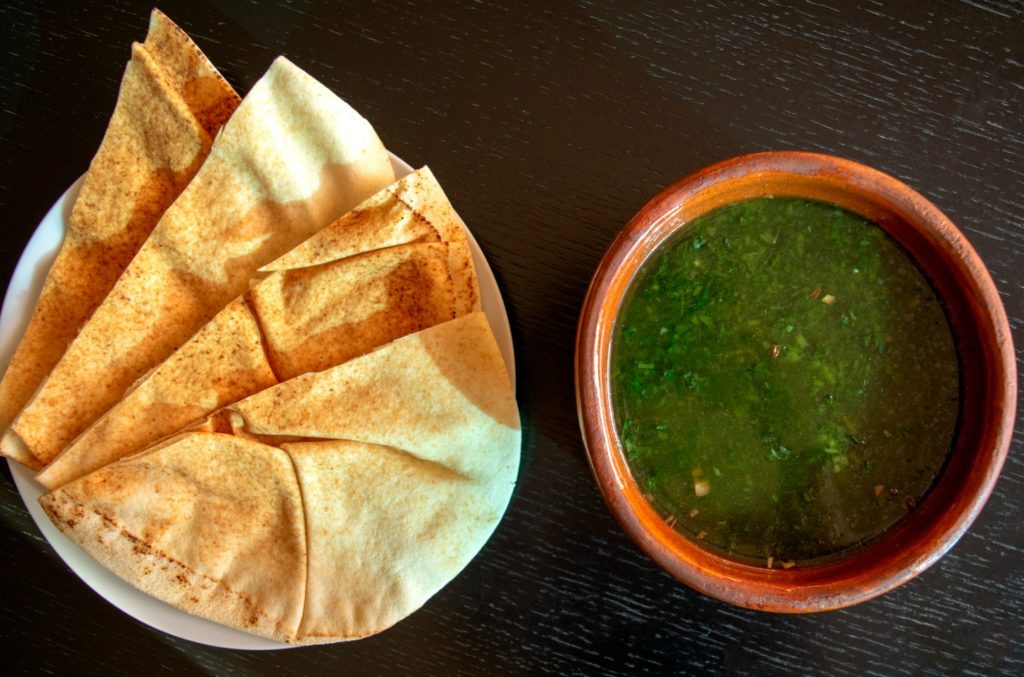
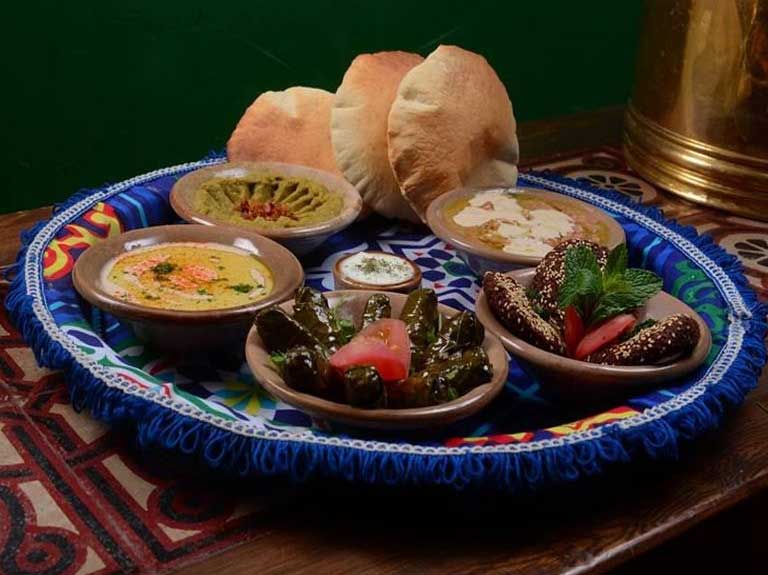
Molokhia: Molokhia is a traditional Egyptian dish made from the leaves of the jute plant. The leaves are finely chopped and cooked with garlic, coriander, and chicken or vegetable broth to create a thick, spinach-like soup. It is often served over rice or accompanied by Egyptian bread.
Egyptian Tea and Coffee: Egyptians have a strong tea and coffee culture. Traditional Egyptian tea is a black tea infused with aromatic herbs like mint or sage, served sweetened and often accompanied by a sprig of mint. Egyptian coffee is strong and typically served in small cups. It’s often flavored with spices like cardamom and enjoyed with a touch of sweetness.
Basbousa: A popular dessert, basbousa is a sweet semolina cake soaked in a fragrant sugar syrup. It’s often flavored with rosewater or orange blossom water and can be garnished with nuts, such as almonds or pistachios. Basbousa is a delectable treat that showcases the Middle Eastern influence on Egyptian sweets.
Fresh Juice: Egypt is famous for its abundance of fresh and flavorful fruits. Street vendors and juice shops offer a variety of freshly squeezed juices, including mango, guava, pomegranate, and sugarcane. These refreshing drinks are perfect for quenching your thirst and enjoying the tropical flavors of the country.
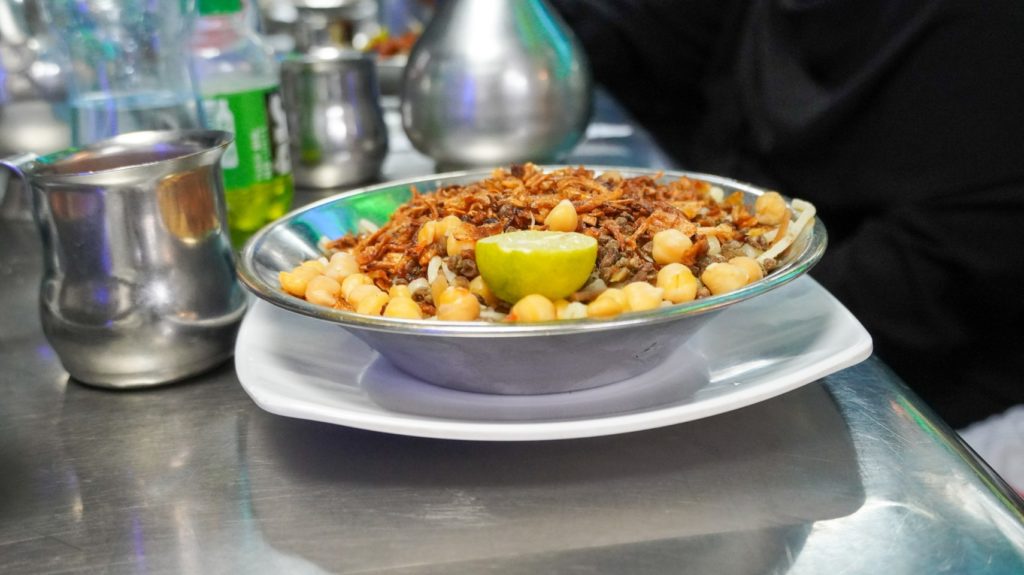
The best restaurants in Egypt
Maison Thomas, Cairo: Located in Zamalek, Cairo, Maison Thomas is a renowned Italian restaurant that has been a favorite among locals and visitors since 1922. Known for its wood-fired oven pizzas and homemade pasta, the restaurant offers a cozy atmosphere and delectable Italian specialties prepared by skilled chefs.
Abou El Sid, Cairo: Situated in Zamalek, Abou El Sid is a popular restaurant specializing in traditional Egyptian cuisine. The restaurant’s chef creates authentic dishes using time-honored recipes, such as stuffed vine leaves, grilled meats, and slow-cooked tagines. Abou El Sid provides a charming setting to experience the flavors of Egypt’s culinary heritage.
Khan El Khalili Restaurant, Cairo: Nestled in the heart of Islamic Cairo, Khan El Khalili Restaurant offers a cultural and gastronomic experience. The restaurant serves Egyptian and Middle Eastern dishes, prepared by skilled chefs who craft flavorful mezze, grilled kebabs, and aromatic rice dishes. Enjoy your meal amidst the vibrant ambiance of this historic area.
Felfela, Cairo: Felfela is a legendary Egyptian restaurant located in downtown Cairo. Established in 1959, it has become a landmark known for its authentic Egyptian cuisine. The chef at Felfela expertly prepares Egyptian classics such as koshary, molokhia, and grilled meats. The restaurant’s nostalgic atmosphere adds to the charm of the dining experience.
Luxor Restaurant, Luxor: Situated in the heart of Luxor, Luxor Restaurant offers a delightful mix of Egyptian and international cuisines. With a talented chef at the helm, the restaurant serves an array of dishes, including grilled seafood, Egyptian tagines, and Mediterranean-inspired creations. Enjoy the flavors while overlooking the scenic Nile River.
Lanterns Restaurant, Alexandria: Located in the historic district of Alexandria, Lanterns Restaurant combines stunning sea views with delectable seafood specialties. The chef prepares fresh fish and seafood dishes, including grilled prawns, fish tagines, and flavorful calamari. Lanterns is an ideal spot to savor the flavors of Alexandria’s coastal cuisine.
El Masryeen Restaurant, Alexandria: El Masryeen Restaurant is a popular eatery in Alexandria, known for its authentic Egyptian street food. The chef creates flavorful dishes such as falafel, koshary, and shawarma. The restaurant’s casual setting and affordable prices make it a go-to spot for experiencing the local culinary scene.
Sofra, Cairo: Located in the vibrant Zamalek neighborhood, Sofra offers a contemporary take on Egyptian cuisine. The restaurant’s skilled chef infuses traditional flavors into modern dishes, serving delicacies like stuffed pigeon, grilled meats with creative marinades, and innovative desserts. Enjoy a sophisticated dining experience with a twist of Egyptian culinary heritage.
Fish Market, Sharm El Sheikh: As the name suggests, Fish Market in Sharm El Sheikh specializes in fresh seafood. Situated in Naama Bay, the restaurant offers a unique dining experience where guests select their fish or seafood from a market-style display, and it is then cooked to perfection by the skilled chefs. Indulge in grilled fish, prawns, and other delectable seafood dishes.
The Blue Restaurant, Hurghada: Overlooking the Red Sea, The Blue Restaurant in Hurghada offers a refined dining experience with stunning ocean views. The chef expertly prepares a variety of international and Egyptian dishes using locally sourced ingredients. From seafood platters to grilled meats and vegetarian options, the menu caters to diverse tastes.
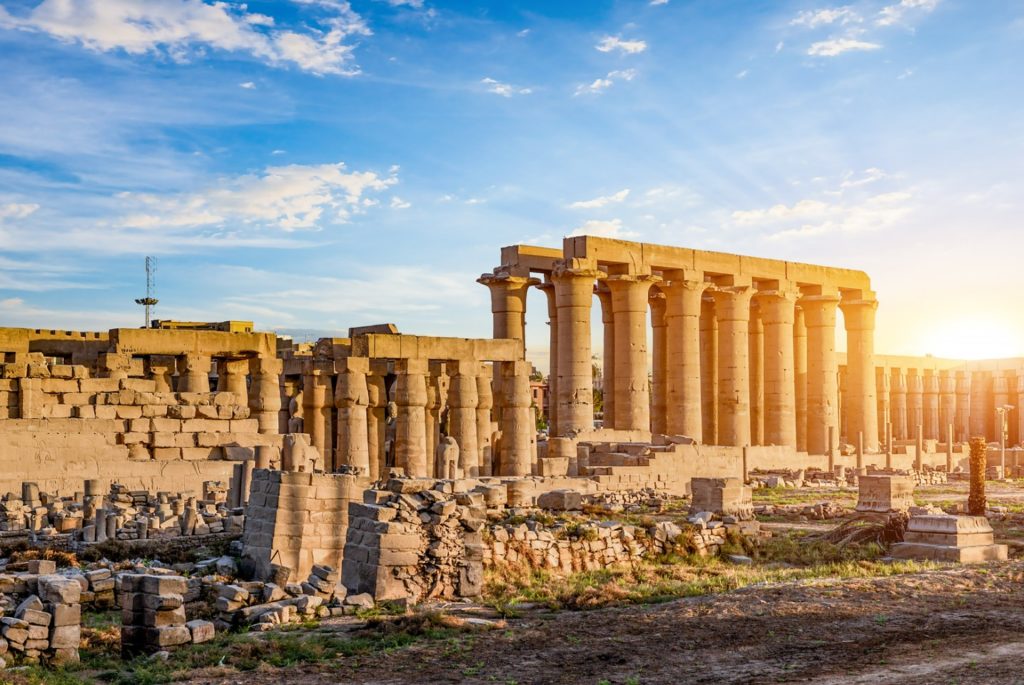
Shopping, taxes and tipping in Egypt
When shopping in Egypt or paying for food at restaurants, it’s important to understand the taxation, service charges, and tipping practices in the country. Here’s a breakdown of these aspects:
Value Added Tax (VAT): Egypt imposes a Value Added Tax (VAT) on most goods and services, including food and beverages. The standard VAT rate is 14%. This tax is usually included in the prices displayed on menus or price tags. However, it’s advisable to check if the displayed prices include VAT or if it will be added separately to the final bill.
Service Charges: Many restaurants in Egypt include a service charge in the bill, which is typically around 10-12% of the total amount. This service charge is meant to cover the gratuity for the staff. It is important to note that the service charge does not necessarily go directly to the waitstaff as a tip, but rather it is a fee charged by the establishment.
Tipping: Tipping, known as “baksheesh” in Egypt, is a common practice and is appreciated for good service. While it’s not mandatory, it is customary to leave a tip to show appreciation. In restaurants, it is common to leave an additional tip of around 5-10% of the total bill, especially if a service charge is not included. In hotels, it’s customary to tip hotel staff who provide services such as carrying luggage, housekeeping, or concierge assistance. Tipping taxi drivers, tour guides, and other service providers is also appreciated.
It’s important to have some small denomination Egyptian currency (Egyptian pounds) on hand for tipping purposes, as not all establishments may accept credit cards for tips. Additionally, it’s advisable to check your bill to ensure that service charges or other fees are clearly stated before deciding on an appropriate tip amount.
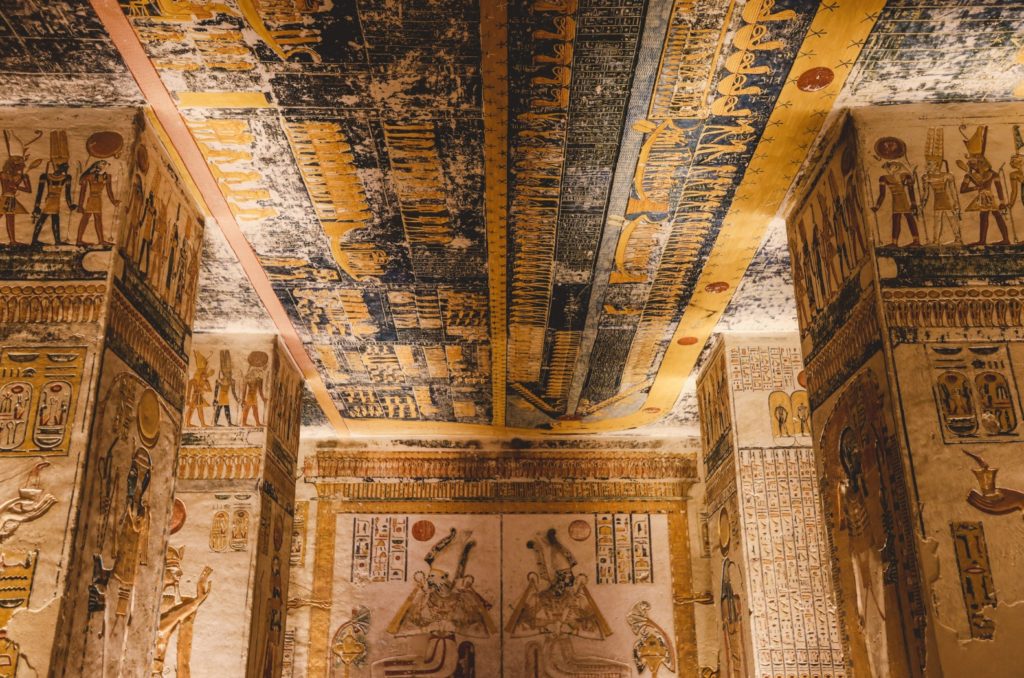
What not to do in Egypt, things to avoid
When visiting Egypt, it’s important to be mindful of local customs and cultural sensitivities. Here are some things to avoid or refrain from doing to ensure a respectful and smooth experience:
Public Displays of Affection: Egypt is a conservative country, and public displays of affection, such as kissing or hugging, are generally considered inappropriate. It’s best to exercise discretion and avoid excessive physical contact in public places.
Offensive Clothing: Dress modestly, particularly when visiting religious sites or conservative areas. Avoid wearing revealing clothing, short shorts, or low-cut tops that may be deemed disrespectful or offensive to local customs. It’s advisable to cover your shoulders and knees, and women may consider carrying a lightweight scarf to use as a cover-up if needed.
Disrespecting Religious Sites: Egypt is home to numerous mosques, churches, and ancient temples that hold deep religious and historical significance. When visiting these sites, dress modestly, remove your shoes when required, and follow any rules or guidelines provided. Refrain from engaging in disrespectful behavior, such as climbing on structures, touching sacred artifacts without permission, or engaging in loud or disruptive behavior.
Photography Etiquette: While photography is generally allowed in most tourist areas, it’s essential to be respectful and considerate when taking photos, especially of locals. Always ask for permission before photographing people, particularly in more traditional or conservative communities. Additionally, some sites may have restrictions on photography, so it’s crucial to follow any rules or guidelines provided by the authorities.
Political and Religious Discussions: Egypt has a complex political and religious landscape. It’s advisable to avoid engaging in sensitive discussions or making derogatory remarks about political or religious figures, beliefs, or practices. Respectful conversations can be enriching, but it’s important to approach such topics with caution and sensitivity.
Drinking Tap Water: It’s generally recommended to avoid drinking tap water in Egypt. Stick to bottled water, which is widely available and affordable. Ensure that the bottle is properly sealed before consuming it.
Street Food Hygiene: While street food is a popular and delicious part of Egyptian cuisine, it’s essential to be mindful of hygiene practices. Opt for stalls and vendors that maintain clean and hygienic conditions. Avoid consuming raw or undercooked food, and choose dishes that are prepared in front of you and served hot.
Overly Generous Donations: Egypt has its share of individuals seeking donations from tourists. Exercise caution when approached by people asking for money or assistance. It’s advisable to contribute to established charitable organizations or seek guidance from reputable local sources if you wish to support a cause.
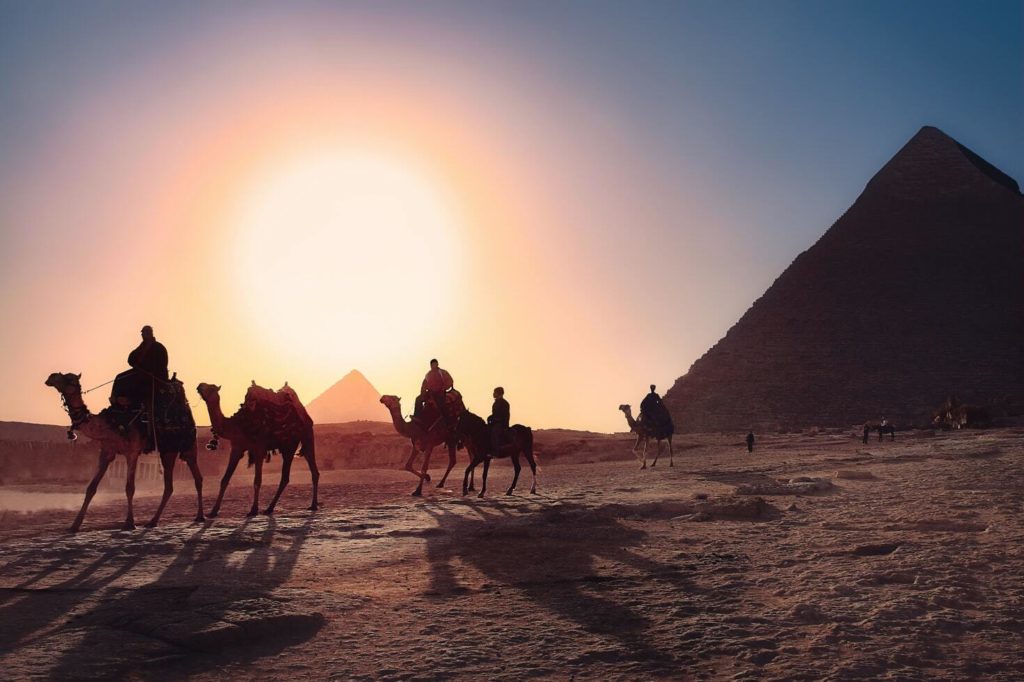
Safety and security in Egypt
Safety and security are important considerations when traveling to any destination, and Egypt is no exception. While Egypt has been a popular tourist destination for many years, it’s important to stay informed and take necessary precautions to ensure a safe and secure trip. Here is an overview of safety and security in Egypt:
Government Travel Advice: Before traveling to Egypt, it is recommended to check the travel advice provided by your government or relevant authorities. They can provide up-to-date information on any security concerns, travel restrictions, or areas to avoid. Stay informed about the current situation and follow their guidance.
Tourist Areas: Major tourist areas and attractions in Egypt, such as Cairo, Luxor, and Red Sea resorts like Sharm El Sheikh and Hurghada, have a significant security presence and are generally considered safe for travelers. These areas often have heightened security measures in place to ensure the safety of tourists.
Personal Security: As with any destination, it’s important to take general safety precautions. Keep a close eye on your belongings, especially in crowded areas or tourist sites. Use hotel safes to store valuable items, and be cautious of pickpockets. Avoid walking alone late at night and consider using authorized taxis or transportation services.
Demonstrations and Public Gatherings: Egypt has experienced political demonstrations in the past. While most protests are peaceful, they can occasionally turn violent. It is advisable to avoid participating in or being present at demonstrations, political gatherings, or large public gatherings to minimize any potential risks.
Desert Safety: If you plan to venture into Egypt’s deserts, it is essential to take precautions and travel with experienced guides or tour operators who are knowledgeable about the region. Carry sufficient water, sunscreen, and appropriate clothing to protect against the harsh desert conditions.
Cultural Sensitivity: Respect the local culture, traditions, and religious practices of Egypt. Dress modestly, particularly when visiting religious sites. Be mindful of photography restrictions and always seek permission before photographing people, particularly in more conservative areas.
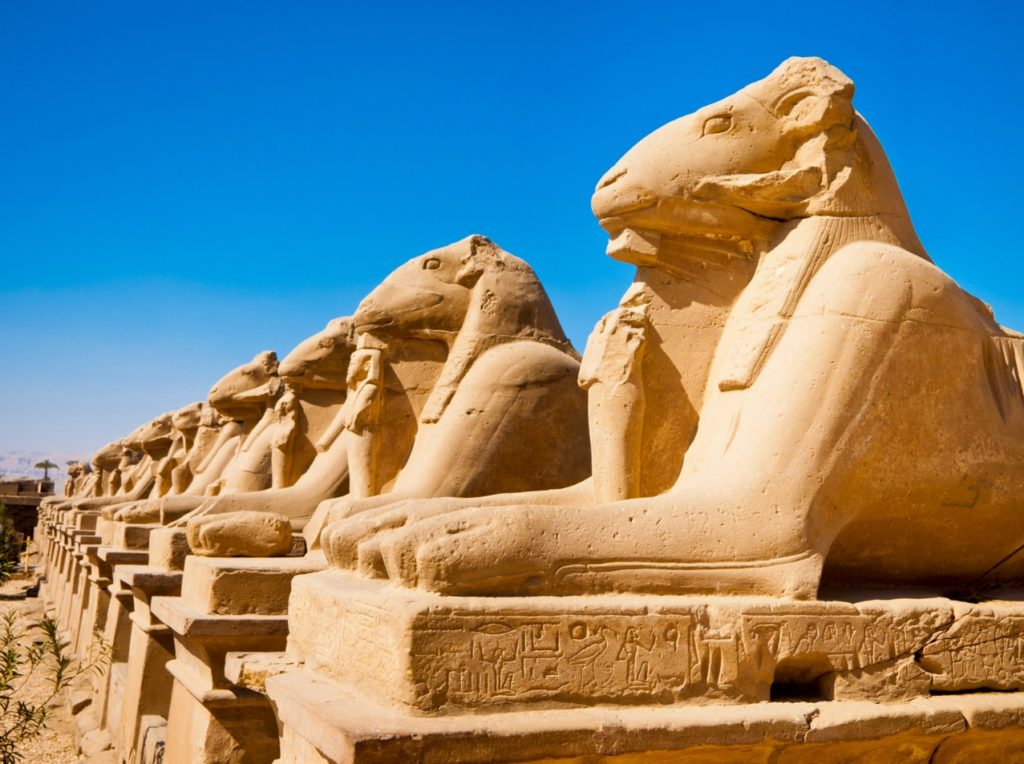
Final travel advice for travellers
Here are some practical travel tips and information to keep in mind while visiting Egypt:
Electricity and Charging: Egypt operates on a 220-volt electrical system, and the power sockets typically have two round pins. If your devices use a different voltage or plug type, you may need a voltage converter or adapter. It’s advisable to bring a universal adapter to ensure you can charge your electronic devices.
Cash and Card Payments: While major credit and debit cards are widely accepted in larger hotels, restaurants, and shops in tourist areas, it’s still recommended to carry some cash for smaller establishments and local markets. ATMs are readily available in major cities and towns, and it’s advisable to withdraw Egyptian pounds (EGP) for everyday expenses. Keep in mind that smaller villages or remote areas may have limited access to ATMs, so it’s wise to have enough cash on hand when venturing into those areas.
Cost of Living: Egypt generally offers a relatively affordable cost of living compared to many other destinations. Prices can vary depending on the location and the level of tourism development. Major tourist areas, such as Cairo and Luxor, may have slightly higher prices for accommodations and dining compared to smaller towns or rural areas. However, overall, Egypt is known to offer good value for money.
Emergency Numbers: The emergency number in Egypt is 122 for police assistance, 123 for ambulance services, and 180 for fire emergencies. It’s a good idea to save these numbers and keep them handy in case of any emergencies or urgent situations.
Language: Arabic is the official language in Egypt. While English is commonly spoken in tourist areas, it’s helpful to learn a few basic Arabic phrases or carry a translation app to facilitate communication, especially in more remote areas.
Cultural Etiquette: Egyptians are generally warm and welcoming, but it’s important to respect their culture and customs. Dress modestly, particularly when visiting religious sites. Punctuality is valued in business settings, but social gatherings may have a more relaxed concept of time. It’s customary to greet people with a handshake and use the right hand for eating and exchanging money.
Health and Safety: It’s advisable to drink bottled water and avoid tap water. Be cautious with street food and ensure it is prepared and cooked in hygienic conditions. Apply sunscreen, especially during hot seasons, and stay hydrated. Travel insurance is recommended to cover any unexpected medical expenses or travel disruptions.
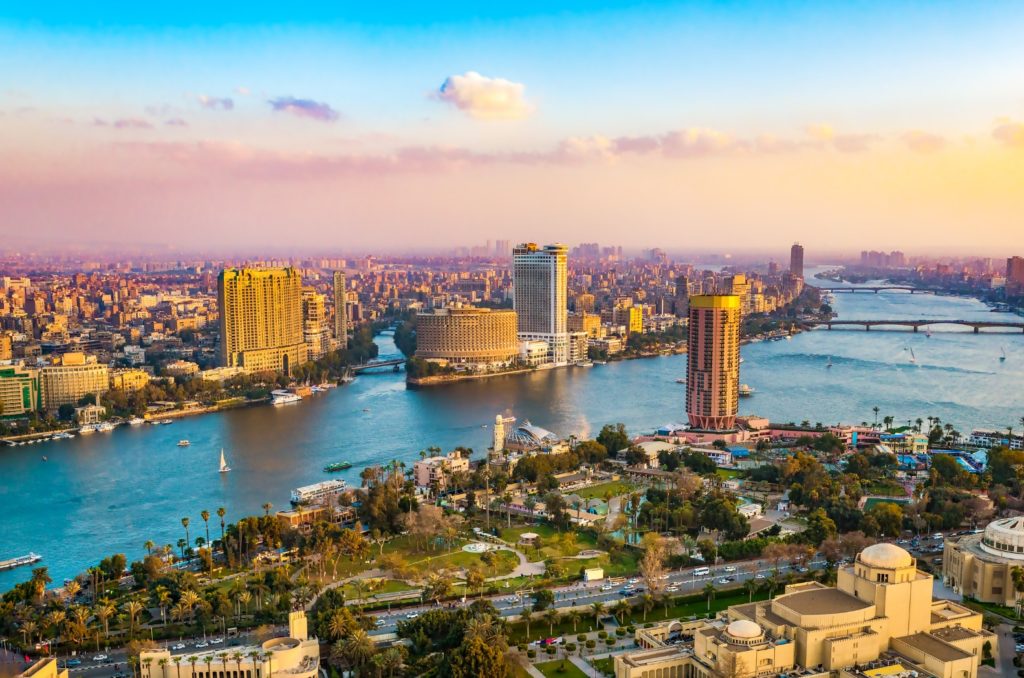
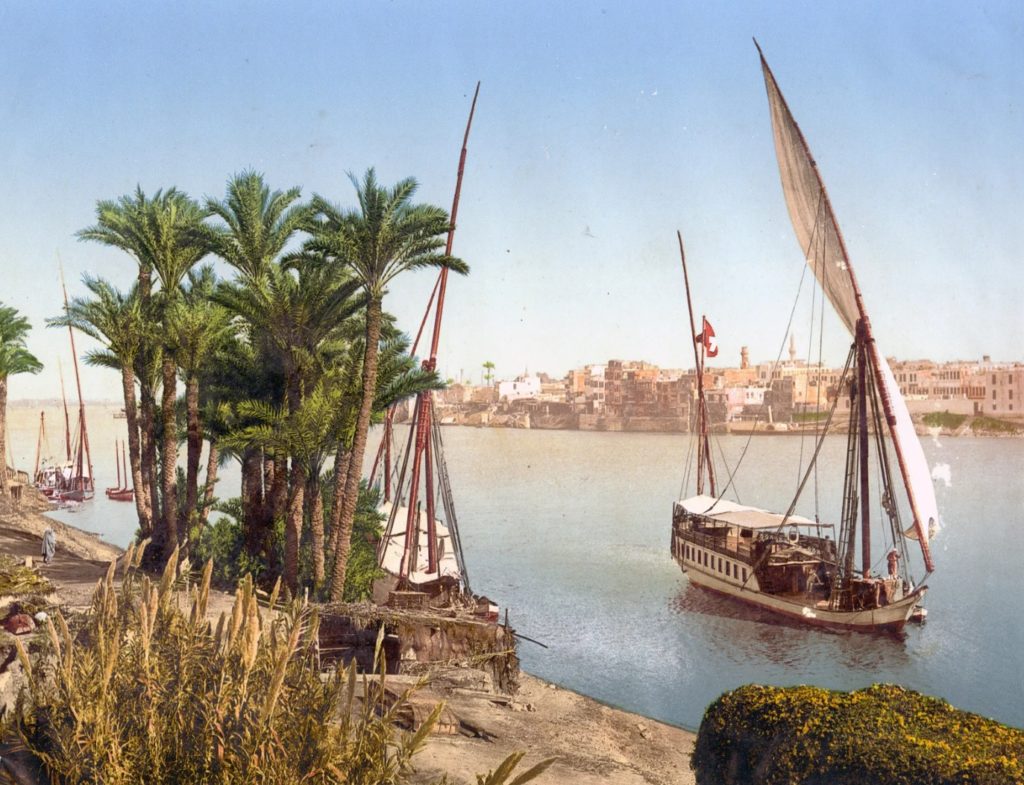
Egypt in movies
Egypt has been a captivating setting for numerous films, attracting filmmakers from around the world to showcase its rich history, stunning landscapes, and vibrant culture. Here are a few notable movies filmed in Egypt, along with a brief description of their plots and some prominent actors:
Lawrence of Arabia (1962): Directed by David Lean, this epic historical drama follows the life of T.E. Lawrence during World War I. Filmed in various locations including Egypt’s Sinai Peninsula and the deserts of Jordan, the movie stars Peter O’Toole as Lawrence, depicting his journey and involvement in the Arab Revolt.
The Mummy (1999): A thrilling adventure film directed by Stephen Sommers, The Mummy is set in 1920s Egypt. The story revolves around an archaeological expedition that inadvertently awakens an ancient mummy, played by Arnold Vosloo. Brendan Fraser portrays the lead character, an adventurer who must save the world from the resurrected mummy’s wrath.
The English Patient (1996): Directed by Anthony Minghella, this romantic war drama is set during World War II and has scenes filmed in Egypt’s desert landscapes. The film stars Ralph Fiennes as a critically burned and amnesiac patient, whose memories gradually unfold through flashbacks. The story intertwines love, betrayal, and the challenges faced during wartime.
Cleopatra (1963): This classic historical drama depicts the life of Cleopatra, the legendary Egyptian queen. Directed by Joseph L. Mankiewicz, the film features Elizabeth Taylor in the iconic role of Cleopatra, capturing her tumultuous relationships with Julius Caesar (Rex Harrison) and Mark Antony (Richard Burton). The movie showcases grand sets and opulent costumes to recreate ancient Egypt.
Exodus: Gods and Kings (2014): Directed by Ridley Scott, this biblical epic retells the story of Moses and the Exodus of the Israelites from Egypt. Starring Christian Bale as Moses and Joel Edgerton as Ramses II, the film showcases Egypt’s ancient landscapes and monumental structures, depicting the struggle and liberation of the Israelites.
Raiders of the Lost Ark (1981): This action-adventure film, directed by Steven Spielberg, features the iconic archaeologist Indiana Jones, portrayed by Harrison Ford. While the film’s story takes place across various locations, it includes scenes filmed in Egypt, showcasing ancient ruins and iconic landmarks.
Death on the Nile (2022): Based on Agatha Christie’s novel, this mystery thriller features renowned detective Hercule Poirot, played by Kenneth Branagh. Set against the backdrop of a luxurious Nile River cruise, the film showcases Egypt’s scenic landscapes and unfolds a murder investigation with an ensemble cast including Gal Gadot, Armie Hammer, and Emma Mackey.

Egypt in books
Egypt has inspired countless literary works, with its rich history, mystique, and captivating landscapes serving as a backdrop for various stories. Here are a few notable books set in Egypt, each offering a unique perspective on the country:
“The Cairo Trilogy” by Naguib Mahfouz: Considered a masterpiece of Egyptian literature, this trilogy consists of three interconnected novels: “Palace Walk,” “Palace of Desire,” and “Sugar Street.” Set in Cairo from the early 1900s to the mid-1950s, the books delve into the lives of the Abd al-Jawad family, exploring themes of love, family dynamics, social change, and Egypt’s struggle for independence.
“Death on the Nile” by Agatha Christie: This classic murder mystery by renowned author Agatha Christie takes place aboard a luxurious Nile River cruise. Featuring the iconic detective Hercule Poirot, the story unfolds as a murder occurs during the cruise, leading Poirot to unravel a complex web of motives and secrets amidst the backdrop of Egypt’s iconic landmarks.
“The Map of Love” by Ahdaf Soueif: This historical novel spans both 19th-century and contemporary Egypt, intertwining the story of a modern-day British-Egyptian woman and the forbidden love affair between an Englishwoman and an Egyptian nationalist during the time of British colonial rule. Through their stories, the book explores themes of love, identity, and political upheaval.
“River God” by Wilbur Smith: Set in ancient Egypt, “River God” is the first book in a series known as the “Egyptian Novels.” The story follows Taita, a slave and polymath, as he becomes embroiled in political intrigue, war, and the quest for power during the reign of Pharaoh Tamose. Rich in historical detail, the book offers a vivid portrayal of ancient Egyptian civilization.
“The Yacoubian Building” by Alaa Al Aswany: This novel provides a glimpse into the lives of the diverse residents of a Cairo apartment building. Through a cast of interconnected characters, the book explores themes of love, corruption, social inequality, and the impact of political and social change on Egyptian society.
“Palace Walk” by Naguib Mahfouz: The first book in Mahfouz’s Cairo Trilogy, “Palace Walk” focuses on the life of a Cairo merchant named Ahmad Abd al-Jawad and his family during the early 20th century. It delves into themes of patriarchy, religious conservatism, and the clash between tradition and modernity in Egyptian society.